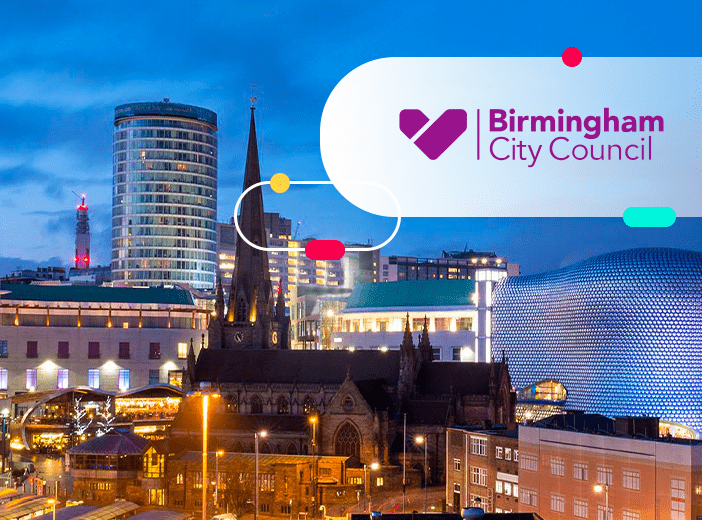How to Involve Your Colleagues in Your Open Data Project
Working in open data can be lonely. Open data champions and specialists often work with little or no support to turn ideas into the reality of publicly available open data. However, to make open data impactful and sustainable in the long run, working alone is not an option. It is critical to engage other people within your organization in open data projects.

Working in open data can be lonely. Open data champions and specialists often work with little or no support to turn ideas into the reality of publicly available open data. However, to make open data impactful and sustainable in the long run, working alone is not an option. It is critical to engage other people within your organization in open data projects.
“Involving people in your organization with open data projects takes planning, preparation, and practice.”
While there are many benefits to engaging a variety of people within organizations in open data projects, there are equal if not more challenges to doing it well. Successful engagement with open data can grow capacity in an organization but bad engagement can set back efforts even more. Involving people in your organization with open data projects takes planning, preparation, and practice.
This blog post outlines a few ways you can get started engaging others in your organization in open data projects. While I focus mainly on teams and individuals within your organization, the same principles apply to engaging public stakeholders as well and many of the links below include more extensive guidance on engaging a variety of types of stakeholders. In any case, these tips should help as you plan to get out from behind your desk and start engaging more people in your organization in open data.
Who to engage – common stakeholder groups
One of the core elements of engaging people well is knowing your audience. Deep engagement efforts often start with a stakeholder map to help identify and outline key individuals and groups related to particular projects. Other engagement efforts like this example from the Sunlight Foundation are now sometimes also including user personas, a great tool from the design world to help target engagement for specific stakeholders. You can use these tools to help you get started on brainstorming potential people to engage in your organization.
In most organizations, there are a few types of internal stakeholders that almost always show up on internal stakeholder maps. They are a mix of technical and non-technical people and all are important for ensuring open data projects will last within your organization. These people generally fall into four categories: leadership, data owners, subject matter experts, central staff.
- Leadership: One of the first tasks for open data projects is to ensure organizational leadership buy-in and continuing to keep leadership involved and active in open data can help ensure sustainability and longevity.
- Data owners – At the other end of the spectrum are the actual data owners, those who manage, clean, and maintain data within the organization, who are critical to have on board for any open data effort.
- Subject matter experts: Often the most frequent users of open data, these experts have detailed knowledge about the quality, usefulness, and potential of specific datasets within organizations.
- Central staff: The people within budget, IT, and human resources departments are often critical stakeholders for identifying data across departmental silos, operationalizing open data projects, and providing resources for project success.
How to engage – guiding principles
Even though stakeholders may fall into the groups noted above, you’ll often be engaging a variety of types of people at once in your open data projects. Determining where your project goals overlap with stakeholder needs can help you focus your efforts. Focusing on who you’re engaging and targeting your efforts around their needs can help ensure your engagement helps grow the impact of your projects and meets your goals.
Keeping a few simple principles in mind can help focus your work and ensure you’re not wasting energy on one-off engagements. While there many potential principles, three that I use to guide my work are:
- Engage early and often
- Adjust as you go
- Play the long game
1. Engage early and often
Don’t wait until your project is halfway through to start engaging stakeholders. Be intentional as you begin projects to involve a variety of people across the four groups noted above in brainstorming ideas, determining project goals, and exploring potentially relevant data. Bringing in people from the beginning allows the opportunity to address any fears or misunderstandings and lays the foundation for long-term trust that can help the project get through any tough times.
In addition, engaging a variety of stakeholders early and often allows you to identify willing partners who can be allies in your open data work as you go forward. These partners can provide critical feedback, help with documentation of successes and challenges, and build credibility for open data work in the organization. Finding enthusiastic individuals, teams, and departments in your organization to engage in open data work can create quick wins in the short-term and broaden support for open data in the long-term.
2. Adjust as you go
You’re unlikely to get every engagement right on the first try and that’s ok. Don’t treat ideas as set in stone and be willing to adjust both your project and engagement strategies in order to respond to new conditions. Proactively soliciting feedback from your partners helps you learn as you go and provides key information to target future engagement strategies. Engagement is a collaborative process and being flexible to the needs of your partners will make your projects more resilient in the long-term.
Adjustment also means trying different methods to engage stakeholders over time. Try working with individual departments, setting up cross-functional teams, and finding time to meet and work with motivated individuals no matter their position in the organization. Testing different methods of engagement helps build organizational awareness as well as skills that can help get people on board.
3. Play the long game
Engagement is a long-term process and treating it as such is critical to planning a strategy that is sustainable. Building relationships with unfamiliar people and departments on a new topic like open data will take time and repeated engagement.
“And make sure to regularly pause for reflection and to tell success stories to help keep your focus on the things that matter in your open data projects.”
To help keep the focus over the long-term, create structures that build repeated engagements with people in your organization. If you don’t have a data governance group, think about creating one as a space to get feedback from key people in your organization and plot out long-term strategies. Plan events that focus on data like skill development workshops or brown-bag lunches and learn to expand the footprint of data focused people in the organization. And make sure to regularly pause for reflection and to tell success stories to help keep your focus on the things that matter in your open data projects.
As you build engagement into your practice, you’ll gain critical insight into things that work in your organization. Keeping these principles in mind and continuing to explore available resources can help you build for success in the long-term. Getting out from behind the desk to engage people is tough but worth it to make sure your open data projects are successful and sustainable.



